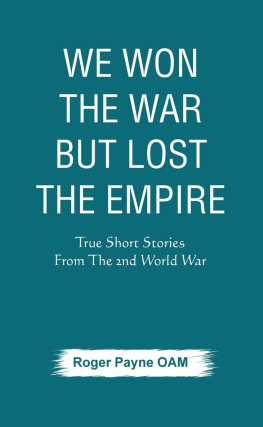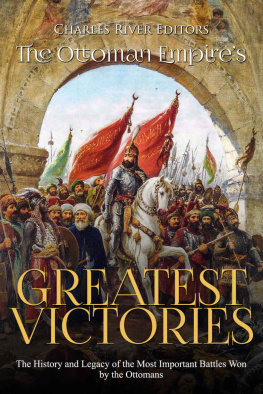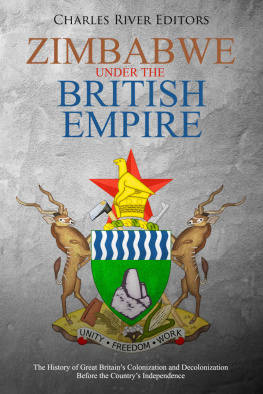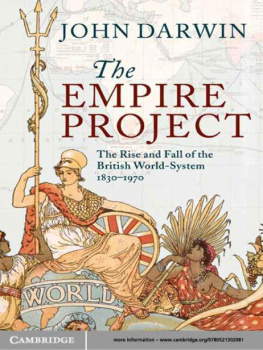THE LAYING OF THE FOUNDATION
TWICE SINCE THE NORMAN CONQUEST has the little country of England been the center of an empire: once when Henry II of England was at the same time master of half France; and now again when the Union Jack or the red ensign flies over cities and continents of which Henry Plantagenet never dreamed. Yet to use the same word to describe both of these empires seems unfortunate. Indeed, the use of the word empire is questionable in either case, only to be sanctioned because we seem to have no other word that will quite answer the purpose. For empire is a Roman word. Its use seems to imply in some way absolute power, the centralization which was so fundamentally characteristic of Rome. Yet the feudal empire of Henry II, so far from being centralized, was a mere bundle of separate lordships, thrown together by the accidents of conquest, marriage, and divorce. It was dashed to pieces in the reign of John, built again by Edward III, torn apart once more in the latter years of the fourteenth century, put together in a structure of surpassing glory by Henry V, and finally destroyed in the reign of his son. Through it all, for these three hundred years, Englands own well-being and growth were something entirely apart from her connection with these other possessions of her king; the bond that united them had no root in national life. And if there is more organic unity in the British Empire of to-day, if there is in it, indeed, a very powerful and living organic unity, yet there is as little centralization as there was in the days of Henry II. So if we use the word empire, as we must, let us at least remember that the old significance of the Roman word imperium has largely departed.
The empire of Henry II was, we have said, the loose, feudal union of half France with England. But in it the English destiny or the English national character was scarcely involved at all. It was not the genius of Englishmen that built up the feudal empire; it was feudal custom and the ability of half a dozen men to whom the English tongue was an abomination. To the Norman kings England was a mere appendage to their continental domains, valued only for her money and her archers. Englands influence was not materially extended by the power of her rulers; she was rather influenced by France than France by England. So that from the landing of the Jutes in 449 until the close of the Hundred Years War in 1453, and of the Wars of the Roses in 1485, England was simply England, not even Great Britain, with no political interest outside her borders except a feudal and dynastic interest which affected only a foreign king and his military aristocracy. Her trade was largely local, across the narrow seas. Her seamen were many and daring, it is true, but from the political point of view they were in the background. The sea-power and imperial ambitions of Venice and Genoa in the south, of the Hanseatic League in the north, stirred as yet neither jealousy nor emulation in the bosoms of the slow-moving islanders.
But if the fifteenth century English were indifferent to seapower, little inclined to maritime enterprise, and quite without imperial ambitions, they and their fathers had unwittingly laid a solid foundation for national greatness. By slow degrees, with many moments of discouragement and reaction, there had been crystallizing the potent ideals of liberty and nationality without which the England that we know, the free mother of free states, could never have existed. In the old days before the Norman Conquest villagers and townsmen had met in their town meetings to deal with town affairs, had elected representatives to meet with other townsmen of the hundred, and to meet in the still larger folkmoot of the shire. That is to say, they had been accustomed to the idea and practice of representative government. The larger affairs of the kingdom as a whole were indeed in the hands of the lords who met in their Witanagernot, i.e., the assembly of the wise, the nobles and clerics of greater power and larger grasp of affairs than could be claimed by the humbler merchants, craftsmen and agriculturists who made up the great mass of the population. Government of the people was still a thing of the future; but the germ of English liberty was clearly present in the England of Alfred and of Edward the Confessor.
This germ was not only never smothered out by the Norman kings: it was positively encouraged. William the Conqueror, William Rufus, Henry I and Henry II saw clearly that the great obstacle to the realization of their ambitious plans for consolidation and centralization was not the people but the great lords. The kings, intent on power, the people, anxious for protection against brutal and lawless barons, had no vision of the possibilities of the future. They became allies only to avert a common danger, not to realize a national or democratic ideal. But between them they built up a steadily growing political unity and a steadily growing national consciousness, until at last the barons, seeing that they could not hold their own against the alliance of king and people, seized a golden opportunity to do a really great thing. For after the great Norman and Angevin kings came King John, enemy of lords and commons, enemy of God and man. The invincible alliance was broken by the blind wickedness of John; and the barons in sudden inspiration joined the troubled and oppressed people in wresting from the king the great charter. To them it was merely a winning move in their play for power. But the Charter signed at Runnymede in 1215, feudal document as it was, saw the birth of the English nation. Only the birth, indeed, not adolescence or conscious maturity. Yet Magna Carta was still an event of tremendous significance. And it was confirmed fifty years later when Simon de Montfort, Earl Of Leicester and premier baron of England, called on the people for aid in his struggle against Johns son, and summoned representatives of the towns to sit side by side with the lords in the first house of Commons. This first representative national assembly was, it is true, called by a rebel. Strictly speaking, it was illegal. But behind it was a force that could no longer be ignored. King and people had been invincible in restraining the lawless ferocity of the barons. Now the barons had been at least partly tamed, and barons and people were allied to restrain the lawlessness of the throne. The great king Edward I, still without any vision of the future and seeing only the advantage of town representation for taxing purposes, bowed to the inevitable. In 1295 he quietly followed the precedent created by de Montfort thirty years before, and thereafter the Parliament of England was composed of lords, knights, and representatives of the towns. Through the fourteenth century the national assembly, soon separated into two houses Lords and Commons grew in power, tightened its grasp on the two essential rights of legislation and taxation, interfered at critical moments with even the administration, gave its support to the deposition of two kings, asserted the rights of the English Church against what seemed the undue claims of the Papacy, grappled with economic difficulties, and made itself bit by bit the controlling power of the kingdom. The king was still the executive chief, and able kings like Edward I, Edward III, and Henry V wielded a still potent scepter. But no king successfully defied Parliament during the fourteenth and fifteenth centuries.








